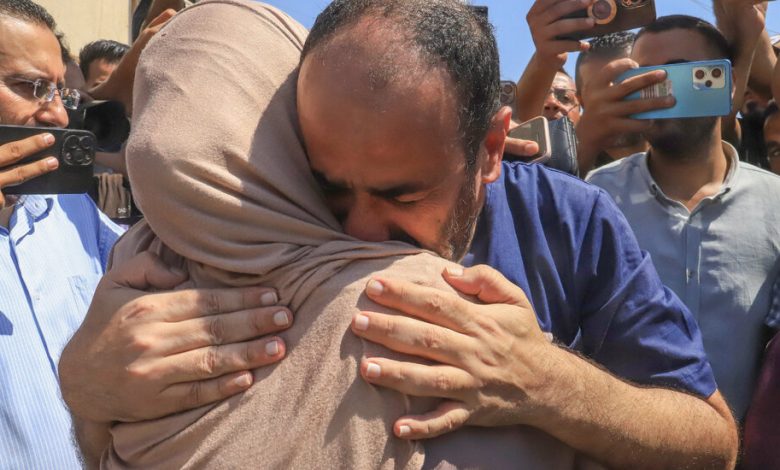Israel Frees Gaza Hospital Chief Held Without Charges for 7 Months

Israel released the chief of the Gaza Strip’s largest hospital on Monday after more than seven months of detention, Palestinian health officials said, a move that drew an immediate outcry in Israel even though no charges against him have been made public.
Mohammad Abu Salmiya, the director of Al-Shifa Hospital in Gaza City, was taken into custody in late November as he took part in an effort to evacuate patients from the hospital, which at the time was under siege by the Israeli military. The military said he was taken for questioning about Hamas operations at the hospital.
Reaction to Dr. Abu Salmiya’s release underlined divergent views of the war both inside and outside Israel. Human rights groups said his prolonged detention without charge was a sign of Israeli mistreatment of Palestinian prisoners, many of them held for long periods with no charges or trials, while some Israeli officials on Monday denounced the decision to release him as an example of Prime Minister Benjamin Netanyahu’s mismanagement of the war.
Speaking at a news conference at Nasser Hospital in Khan Younis after his release, Dr. Abu Salmiya, visibly frail, said that he had been released and returned to Gaza along with nearly 50 other Palestinian detainees, including other doctors and health ministry staff members.
“We were subjected to extreme torture,” he said, adding that his finger had been broken and that he had been beaten over the head repeatedly. The Israeli Prison Service, which operates the Nafha Prison where he was last held, said in a statement that it was not aware of Dr. Abu Salmiya’s claims, and that “all prisoners are detained according to the law.”
The reaction to Dr. Abu Salmiya’s release also highlighted rifts between the Israeli security forces and the country’s political class. The Shin Bet, Israel’s domestic intelligence agency, said in a statement that the government had failed to meet its demand for additional space in detention centers so more “terrorists in Israel and the Gaza Strip” could be arrested. As a result, the Shin Bet said, it and the military had been required to release a certain number of detainees who posed “a lesser danger,” to free up “places of incarceration” for new detainees.
